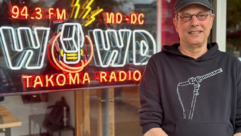The House Judiciary Committee has advanced a bill that would mandate a performance royalty on radio, but chances of it passing in the lame duck session this year are still slim, according to industry observers.
The American Music Fairness Act (AMFA) is supported by the music recording industry and expands the scope of public performance rights in sound recordings to include terrestrial broadcast performances.
The National Association of Broadcasters touts more than 250 lawmakers opposed to the bill (H.R. 4130).
“These lawmakers understand that AMFA will harm local broadcasters and audiences around the country, undermine our ability to serve their communities and ultimately fail artists by leading to less music airplay.
“Broadcasters urge the recording industry to join us in serious discussions instead of using the few legislative days left in the calendar to pursue divisive legislation that faces broad congressional opposition,” NAB said in a statement.
[Related: “House Committee Takes Up American Music Fairness Act“]
Broadcasters have gained bipartisan support from legislators across the country who support the Local Radio Freedom Act, which opposes the proposed performance royalty on radio. NAB has argued that broadcasters’ airplay of artists provides exceptional promotional value to artists and musicians.
However, in his opening statement Dec.7 during the markup proceeding, Rep. Jerrold Nadler (D-NY), chair of the House Judiciary Committee, said artists and musicians who create music through performance should be fairly compensated for their work by radio broadcasters.
“Under this legislation, terrestrial radio stations would use the same royalty payment system that satellite radio and digital streaming services already use: an existing non-profit licensing collective that is required to split the public performance royalty — as set by the Copyright Royalty Board — among the copyright owners, featured artists, non-featured musicians and non-featured vocalists,” Nadler said at this week’s hearing.
Nadler says the legislation protects small radio stations by excluding them from paying what large broadcasting corporations would be required to pay.
“These small, local and public radio stations will pay an affordable, predictable flat licensing fee to play unlimited music, ranging from just $10 per year for the very smallest stations earning less than $100,000 per year up to $500 per year for certain broadcast stations earning between $100,000 and $1.5 million — unless they are owned by a parent company making over $10 million/year,” Nadler said.
[Related: “Radio and Performers Are Back, Arguing Over Royalties“]
There may be time for further negotiations between radio broadcasters and the music industry since observers doubt there is time to get the bill through the 117th session of Congress this year. The next step would be House Speaker Nancy Pelosi (D-CA) scheduling a vote on the bill by the full House.
In his comments on Wednesday, Rep. Darrell Issa (R-CA) indicated that he wants to see all sides — including the musicFIRST coalition — come to the table to negotiate.
“Today, bipartisan consensus made history and delivered the right outcome for artists, and it is now time for all sides to come together and move forward,” said Issa. “This vote was an important step and has set the stage for continued work that must be done.”










